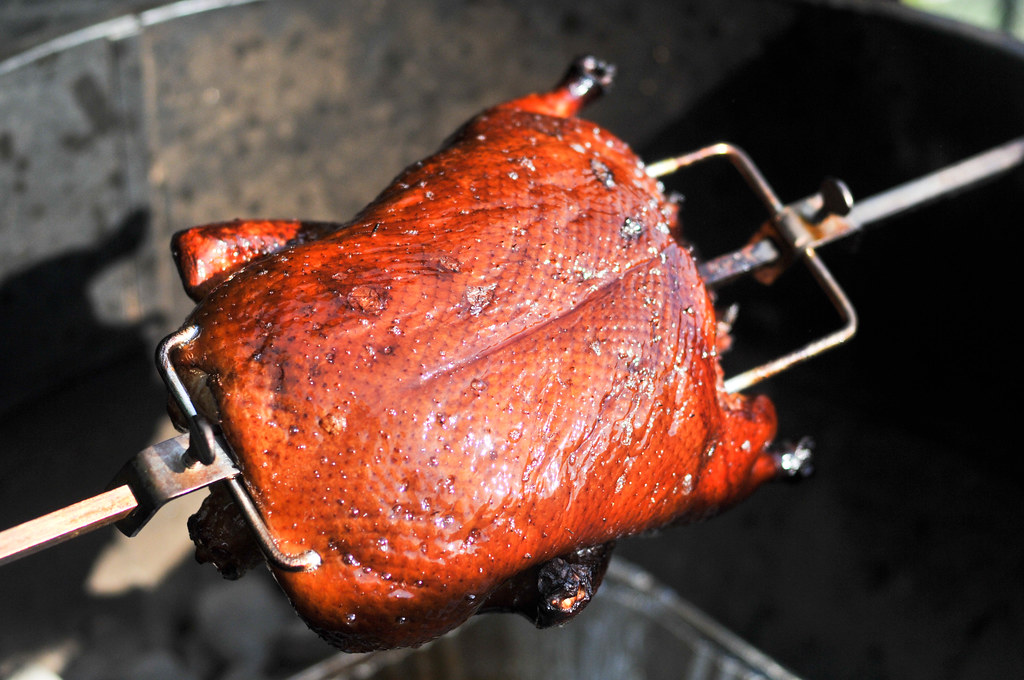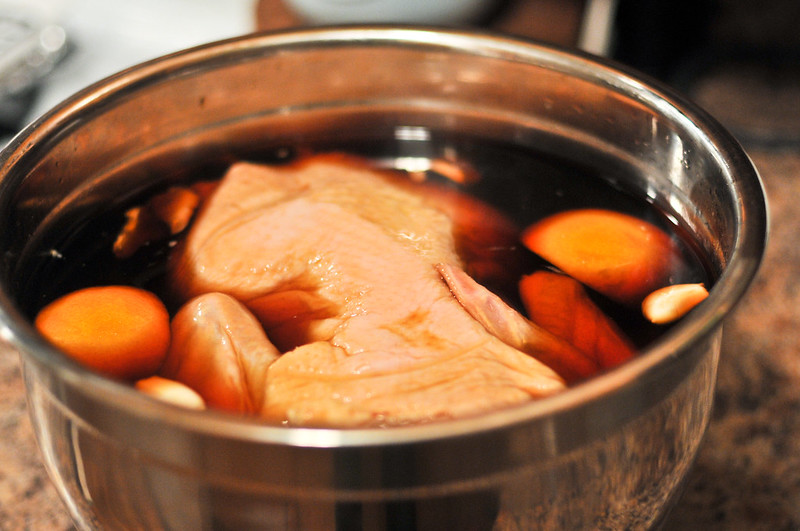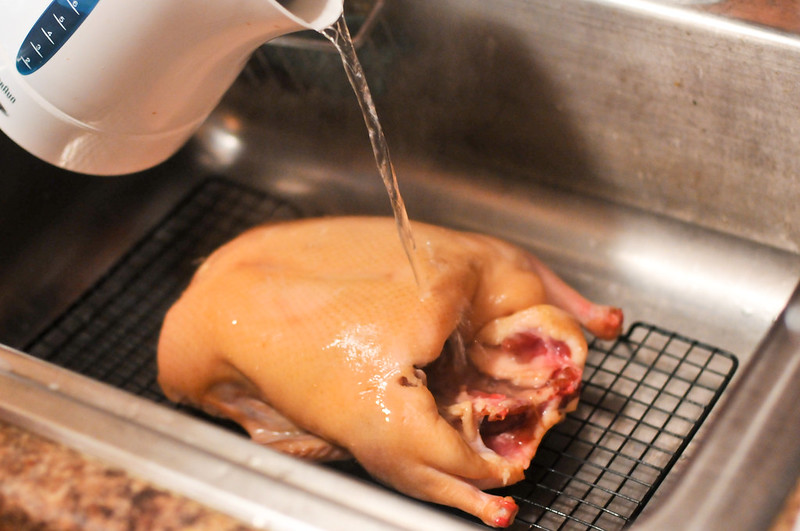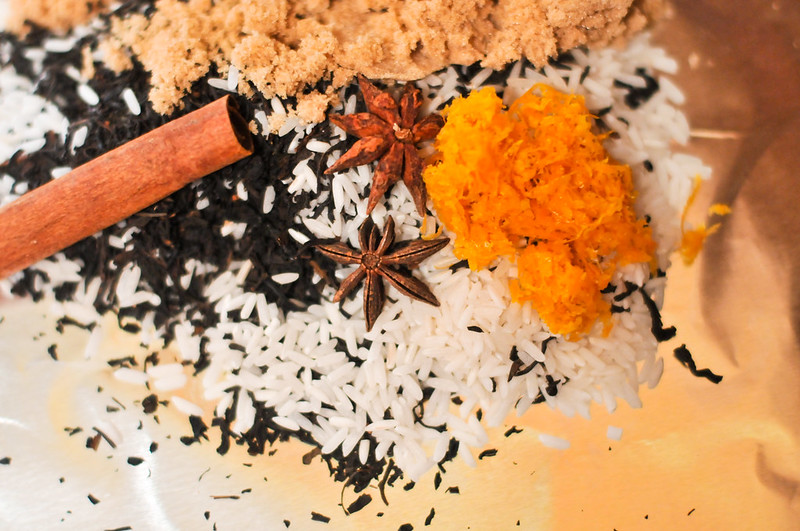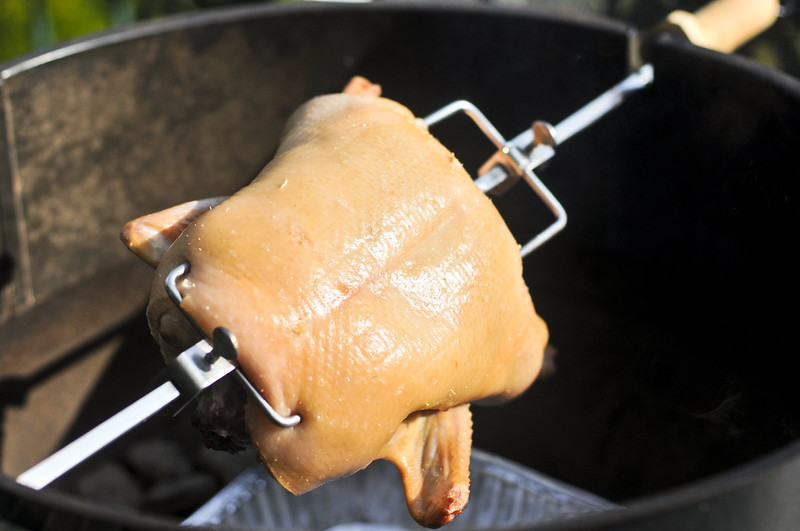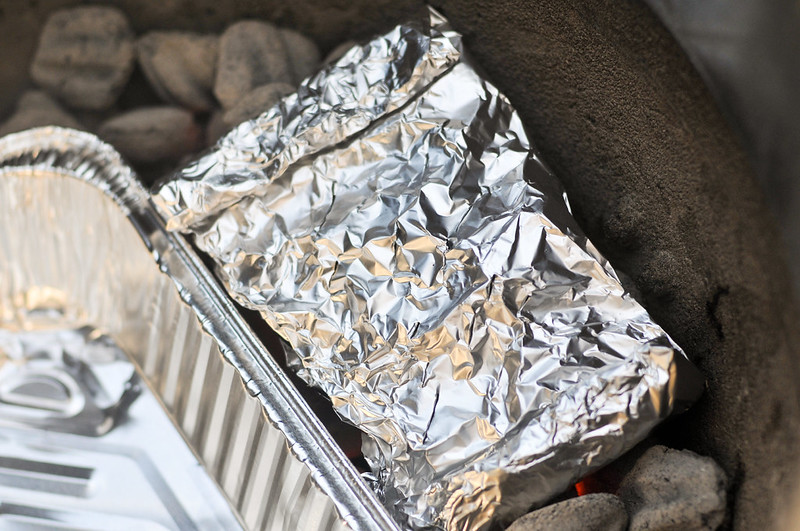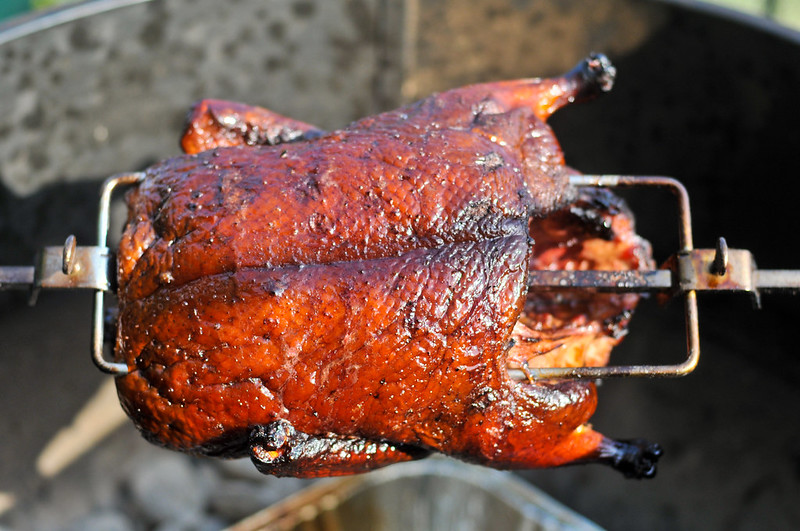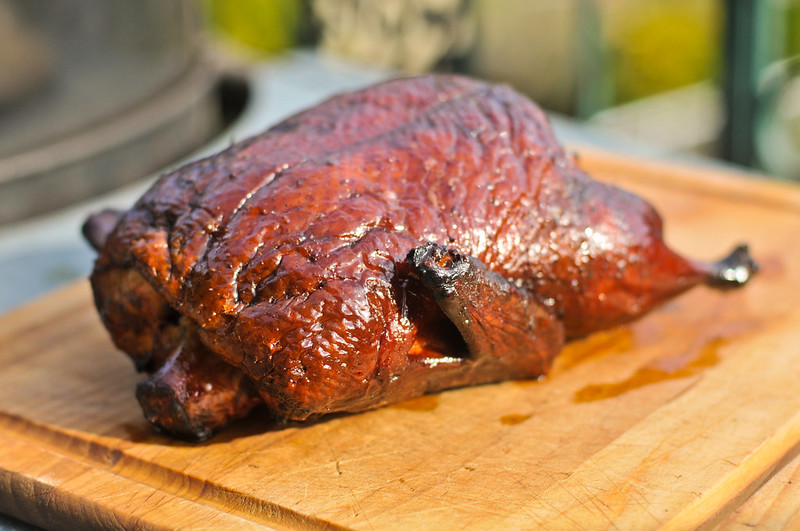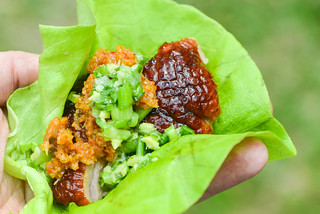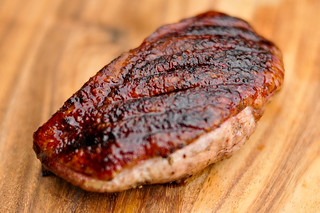Tea Smoked Rotisserie Duck
In my opinion, the Parkers got a good deal when the Bumpuses' dogs stole the Christmas bird, forcing the family to dine on "Chinese turkey" as a holiday alternative in A Christmas Story. Not only is duck a superior meat, but my Jewish upbringing—knowing Chinese on Christmas is more truth than stereotype for most of my kind—leads me to believe it's even more appropriate for celebration (or lack-there-of). So when thinking of what I'd want for Christmas besides ham—ham will always be my number one choice—a tea-smoked duck seeming very fitting for the occasion.
Although it sits amongst turkey and chicken as fairly common fowl, preparation of duck calls for some unique steps for it come out well. One similarity though is that duck also benefits from a brine to increase moisture if you plan on cooking it to full doneness. To add flavor on top of moisture, I devised this salty brine from soy sauce, honey, garlic, ginger, and orange.
After solving a common issue of dryness with poultry via the brine, its time to turn to the unique problem of rendering all that duck fat while also getting a nice crisp skin. Previously I've tried steaming the duck prior to grilling, and while this worked to some extent, it wasn't perfect and was kind of a pain.
This time around I took a two step approach, frist air drying the duck in the fridge overnight, then poking some holes in the skin and pouring boiling water all over the bird. This process tightens up the skin and jump starts rendering the fat, and while it took longer than steaming, it was a lot easier to manage.
To make this duck extra special, I wanted to smoke it, and tea smoking seemed appropriate for an Asian-influenced recipe. Unlike wood, which you can just throw on the coals, tea needs some help to ensure it burns slowly on the fire. To do this, it's mixed with rice in a foil packet. I added the common aromatics of anise, cinnamon, and orange in there as well for a little extra flavor.
For even cooking, there's nothing quite like the rotisserie (which I can say from experience, also happens to make an awesome holiday present). So I threaded the bird onto the spit and got it started over medium heat.
The aroma emanating from the tea packet was intoxicating. The cinnamon, tea, and sugar mixed with the cooking duck to create a smell that could bring people from miles to see what delicious thing is going on the grill.
After a little under an hour, the duck hit 160 degrees in the breast, and boy did it look beautiful—the sight of that mahogany skin, especially after smelling those enchanting aromas, was enough to sell me fully on this bird even before the first bite.
Luckily, the flavor didn't let me down at all. The skin was crisp, although not with the crackling crunch I was hoping for, and the meat had a light salty soy sauce flavor and faint smokiness. It was pretty awesome on its own, but with a little hoisin on the side for dipping, it was irresistible. While I do exalt the virtues of holiday turkeys, this duck blew that comparatively flavorless bird out of the water. So why settle on second best—this "Chinese turkey" is something we can all call delicious and look forward to on Christmas day, no matter if you're celebrating or not.
You Might Also Like
Comments
-
yl I recommend piercing the skin of the duck and NOT pouring hot water on it. What happens your way is that you start to cook the bird with the hot water. If you just pierce the skin well (all over the duck being careful not to pierce the meat) and put it on the rotisserie then you will find the fat drips out on its own almost slow frying the bird in its own fat! this leaves very crispy skin! Make sure you have a drip pan as i have found over 2 inches of fat will drip out. I enjoy putting some root vegetables in this drip pan to cook (not the healthiest side dish but extremely tasty.)
-
alex liberatore trying this for Thanksgiving, but probably won't do the boiling water hack. thanks for the recipe, Josh.
Have a Happy Thanksgiving!
